Contents
| Part 1 (click here to return) | Part 2 (appears on this page) |
| I. Introduction II. The Academic “Experts” |
III. Discussion IV. Conclusion and Policy Implications |
III
Discussion
The four academics discussed in part I of this paper (Kevin Dunn, Andrew Markus, Andrew Jakubowicz, and Lin Paradies) were not a random sample of Australian social scientists. They were not even a random sample of experts on ethnicity and race, many of whom have more moderate views and deploy more credible methods. All of the program’s experts were dedicated, extreme multiculturalists. All have histories of advocating minority interests, including criticising Anglos who assert their own interests.
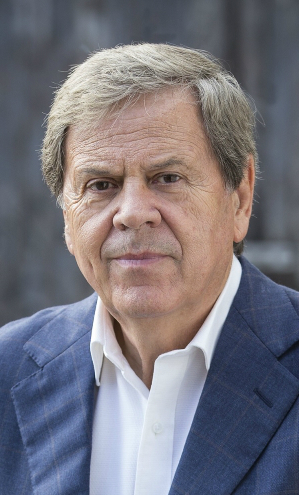
Australian TV personality, Ray Martin
None of the experts raised doubts about Dunn’s survey or the television stunts staged by Ray Martin and his crew in the documentary Is Australia Racist? (SBS, 2017). Not one raised the possibility that racial stereotypes and discrimination can be a rational response to experience. None cited imprisonment rates or evidence of anti-social behaviour. Not one expert took a critical perspective towards the program’s assertions, an extraordinary omission considering the contested nature of the field and the poor quality of the methods employed. Not one expert looked at the situation from the perspective of mainstream Australia. They presented as if in consensus, a team. A fair and reasonable approach by Martin or one of the experts would have gotten the facts straight, for example by interviewing different academics or expressing a dissident view. And it would have balanced the minority perspective with that of the majority.
All four experts concentrated exclusively on alleged negative effects of white ethnicity (“racism”), while ignoring the negative effects of minority ethnicity. The contrast was striking, as if racism is a white disorder.
The absurdity of this position dispels all semblance of disinterestedness. The program was too relentlessly ethnic in its focus to be the product of genuine left cosmopolitanism, for example Marxism or one of its variants. In the cases of Dunn and Jakubowicz, the criticism of white ethnocentrism was too intense, too bitter, too gratuitous to be the product of post-ethnic ideology. It is extraordinary that scholars of ethnicity can be unaware of the psychological findings on the universality of group psychology.
Some factor is missing from the picture. Why the bias against Anglos?
The most overtly Marxist of the four, Kevin Dunn and Andrew Jakubowicz, may have replaced the bogey of the capitalist exploiter with the bogey of an ethnic exploiter, Anglo Australia. Professors Markus and Paradies have different theories but arrive at a similar conclusion, that white racism is the main risk to the joys of permanent open borders and multiculturalism.
One thing we do know is that Dunn, Markus and Jakubowicz were willing to work with Martin and Paradies, self-declared ethnic loyalists, in making a documentary that dealt in part with the latter’s identity group. It is not obvious how individuals motivated by leftist ideals could cooperate to make a program that furthered an ethnic agenda. Jakubowicz has called for Chinese Australians to establish an ethnic lobby.
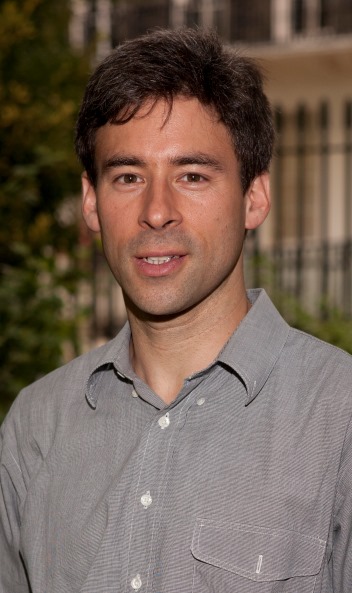
Prof. Eric Kaufmann
This raises the question of whether a principled anti-racism can show favouritism to any ethnic group. Surely white racism is wrong because all racism is wrong, not because it is expressed by a particular people. Normatively, it would seem to be a serious intellectual and moral failing for a left intellectual to play tribal favourites. That is the view of Canadian sociologist Eric Kaufmann, who categorises grades of ethnic affiliation ranging from cosmopolitanism to staunch ethnic solidarity.1 In Kaufmann’s typology, cosmopolitans do not care at all about their ethnic groups. They do care about individual rights, but do not feel ethnic or national or religious loyalty.
Cosmopolitanism has been a mainstay of the radical left, and was the philosophical basis for promoting multiculturalism to Western publics. Martin Luther King’s famous call for people to be judged by the content of their character, not the colour of their skin, is a type of cosmopolitanism that was enthusiastically supported by radicals. By Kaufmann’s standards, the four academics fell well short of that standard. Indeed, Martin and Paradies declared their ethnic attachment to indigenous Australia. Dunn, Markus and Jakubowicz fail the test of cosmopolitanism partly because they cooperated with Martin and Paradies, self-declared ethnic particularists to advance an ethnic goal. This was not accidental association, but a joint effort to produce a program that favoured Martin’s and Paradies’s identity group and criticised Anglo Australians. No one raised objections to this ethnic activism.
At the same time they overlooked the group loyalty of Muslims and other immigrant minorities, despite agreeing that religious solidarity can constitute racism. If opposition to Islam is a form of racism does it not follow that that religion is a race and that Islamists are racists? Their failure to acknowledge, let alone study or criticise, the group motivations of immigrants was surely not due to ignorance. It seems the only ethnicity these high-ranking scholars reject is that of Australia’s majority.
Andrew Markus is Professor of Jewish Civilisation at Monash University, a chair funded by the late Richard Pratt, a generous philanthropist for Jewish causes in Australia, Israel and elsewhere. As the Israeli prime minister Benjamin Netanyahu noted on Pratt’s death, many of his philanthropic gifts went to Israel’s universities, the integration of new immigrants (all of whom are Jewish due to Israel’s strict immigration laws) and disadvantaged Israelis. That shows love for his people, a noble sentiment. But what is Markus, supposedly a radical cosmopolitan, doing accepting funds from an ethnic nationalist? Would not a cosmopolitan shy away from a vertically integrated ethnic enterprise in which a Jewish academic is paid by a Jewish donor to study Jewish affairs? Markus has spent his professional life criticising Australia and other Western countries for immigration policies that were mildly discriminatory compared to Israel’s. Yet it seems he has never criticised Richard Pratt or the Israeli leadership, all dedicated ethnic loyalists. Indeed, he has co-authored a paper praising Israel’s discriminatory immigration policy.2
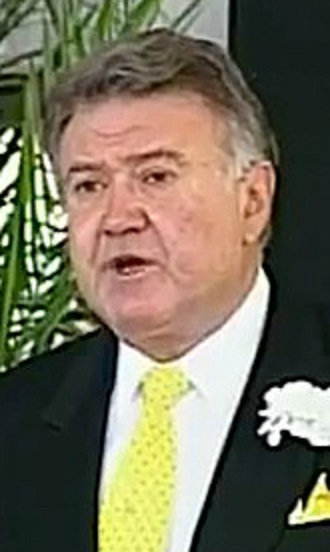
Australian entrepreneur, Richard Pratt
Markus is also involved in Jewish community activities, for example by providing expert advice on demography.3 That is a positive thing to do, but ethnic service is the opposite of genuine cosmopolitanism. The same Professor presents himself as a thorough-going cosmopolitan when he praises young Australians for failing to even perceive ethnic differences. But he flouts that standard when writing about his ethnic group.
He is less connected to Anglo Australia. In a 2010 article Markus compared Israel and Australia. He described Israelis’ national identity in glowing nationalist terms as an attachment to the ancient “land of their forefathers” but dismissed Australia as a settler society with convict origins less than 250 years old. “Until the 1950s Australians of the middle and upper classes typically saw themselves as exiles and yearned to return to mother England and what they termed ‘civilization’”.4 This vilifies Australia’s historic nation and denies it legitimacy. Markus, a professor of history, appears to be unaware of the emergence of national consciousness among Australians in the second half of the nineteenth century. They identified Australia as their homeland or joint homeland and this identification played a critical role in motivating federation in 1901. It was a nationalism that galvanised pride in and defence of Australia. For Markus, Israel is rightfully and proudly the Jewish state but Australia has a shameful past and is up for grabs.
Like Andrew Markus, Jakubowicz also has a special problem with white Christian Australia. It is one thing to defend the Racial Discrimination Act 1975 (Cth), as does Andrew Markus.5 But Jakubowicz racialises the issue by accusing critics of the Act’s notorious section 18C of being well-off white Christian men engaged in a “bigots’ frenzy”, “who are also the majority of those previously complained against under 18C”.6 He accuses Australian journalists of suffering from too much “whiteness” and advancing white-only narratives.7 Jakubowicz condemns majority racism towards minorities but rationalises racism against the majority by characterising it as “reverse racism”, that is, done in retaliation. “Reverse racism may also characterise conflictual relations, where the victims act in aggressively or defensively racist ways (even with little power and few resources) towards their tormentors or people perceived to be from the ‘tormenting’ group.” Jakubowicz is asserting that minority racism is justified because it is a form of defence against white racism, the original sin; it never springs from prejudiced minority minds.8

US Philosopher, Michael Walzer
All five leaders of the program were too ethnically compromised to be genuine liberal cosmopolitans. Their involvement in ethnic causes denies them cover for attacks on Anglo-Australians. It is difficult to see how their aggression is not motivated, in part, by ethnic competition. They portray themselves as fighting a moral crusade when in reality it is a one-sided blood feud.
The veiled tribalism of multiculturalism and “liberal” immigration is not unique to Australia. Kaufmann pointed out that from the beginning U.S. multiculturalism failed to meet the criteria of cosmopolitanism. Advocates in the United States generally retained their ethnic identities and excluded the white majority. American philosopher Michael Walzer proposed a way for genuine liberals to retain their ethnic loyalties while remaining dedicated to universal values. He argued that all tribal identities are legitimate.
Tribalism names the commitment of individuals and groups to their own history, culture, and identity, and this commitment (though not any particular version of it) is a permanent feature of human social life. The parochialism that it breeds is similarly permanent. It cannot be overcome; it has to be accommodated, and therefore the crucial universal principle is that it must always be accommodated; not only my parochialism but yours as well, and his and hers in their turn.9
Walzer’s inclusive position makes sense. There is nothing necessarily wrong with special sympathy for one’s family, tribe and nation. Such parochialism is noble, a source of warmth and bonding that society depends upon for cohesion. However, Walzer’s universal tribalism is not Australian multiculturalism, the version adopted by Martin’s four academics. From the beginnings in the 1970s, that version, like its Canadian and U.S. parents, excluded the majority and treated it as the common enemy, to be subordinated preparatory to being replaced. Multiculturalism was always a regime imposed on a reluctant majority by a triumphant left-minority alliance. Martin’s four experts are very much part of that alliance.
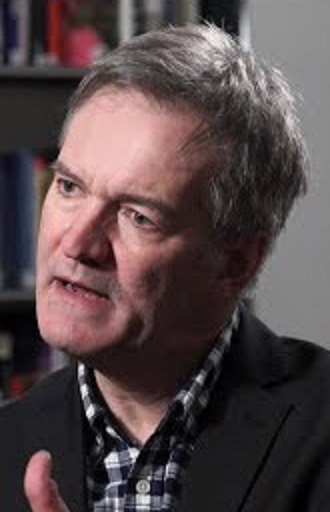
UK commentator, David Goodhart
Proponents of multiculturalism switch between inclusive and exclusive models. The inclusive model supports minority affiliation, while the exclusive model attacks majority affiliation. Statements by the four experts fall into this pattern. There is one remaining defence based on asymmetry of power and victimhood. It might be argued that it is ethical to defend the ethnic interests of minorities victimised by racist majorities, by attacking majority racism. The argument is advanced to justify singling out Anglo ethnocentrism. The argument fails for the following reasons.
Consider its use overseas. In Britain, social commentator David Goodhart cites prominent activists, such as Lee Jasper and Joseph Harker of The Guardian: “Racism, they argue, is prejudice combined with power”, implying that non-whites can’t be racists. Goodhart concludes that “the idea that non-white people can’t be racist towards white people or other non-white people is true only if you twist the definition of racism to fit the thesis [that minorities cannot be racist] at least in the everyday sense of having a negative presumption about someone based on their race.”10 The racism-is-power argument also has problems special to Australia.
Firstly, minorities do very well in Australia, a country that has accepted and absorbed millions of immigrants over the last decades. Immigrants enjoy full political and civil rights. It is true that many indigenous peoples are struggling with economic and health disabilities, but it is not at all clear that the larger society is culpable. Australian governments spend double per capita on indigenous welfare than on non-indigenous welfare. Indigenous land claims have spread across the continent and a separatist indigenous nationalism is growing, generally supported by mainstream parties.11 Those factors resemble generosity, not oppression.
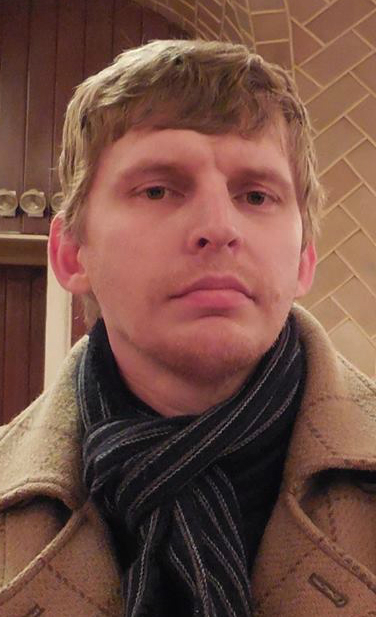
Dr. Stephen Chavura
Secondly, it is not true that Anglo Australia is always dominant or that its position is secure. In 1947 Anglos constituted 89.7 percent of the population.12 Now, in 2017, they are about 68 percent, according to the Human Rights Commission.13 Kevin Dunn rails against Australia’s ethnic hierarchy, which he thinks privileges Anglo males. But Anglos and whites in general are rapidly being reduced to minority status due to bipartisan immigration policies imposed by the major parties and the cultural establishment. If Anglos are dominant and racist, as Dunn insists, why have they been cowed and silenced by political correctness? There is no doubt that Anglo-Australians are the prime target of the human rights apparatus. As observed by Stephen Chavura, a political scientist at Macquarie University, “Multicultural discourse is about silencing any who would dare to criticise the way immigration and integration have been conducted since mass immigration shifted from Europe to Asia and the Middle East in the mid to late 1970s.”14 Anglo-Australians look very much like a subaltern ethnic group, leaderless and prevented from complaining even while losing their country.
Externally Australia’s situation resembles Israel’s, a country in proximity to much larger populations belonging to a different civilisation. Both countries are diverse. The Anglo-derived community is to Australia what Jews are to Israel, the heart of national identity. Both populations’ destiny is irrevocably tied to their nation’s security. Anglos and through them indigenous peoples would lose their national independence if Australia fell under foreign domination, because Australia is their only homeland. That might help explain why 94 percent of the Defence Forces, all volunteers, are of Anglo-Celtic descent.15
The pattern of ethnic bias described above resembles that of Allan Ashbolt, the initiator of the Marxist take-over of ABC news and current affairs in the 1960s. Ashbolt showed antipathy to Anglo Australia. He vilified Australia’s national character for showing “Xenophobia, cultural isolationism, grotesque gentility […] false masculinity (where a capacity for beer-swilling is the measure of courage and stamina), aggressive racism and other gaucheries and crudities arising from the inchoate spirit of nationalism”. He thought these failings were revealed by “Marxian criticism […] of the superstructure”.16
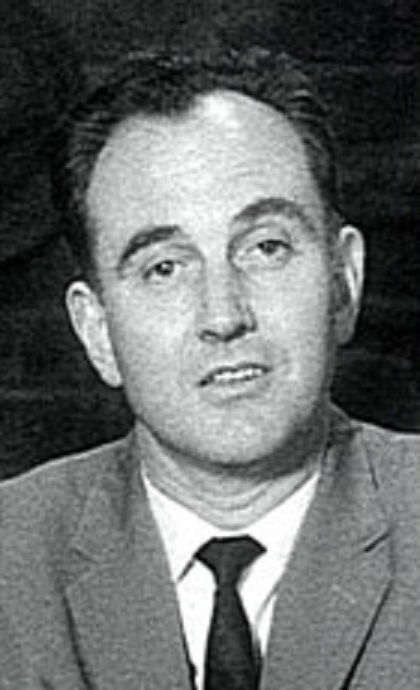
Allan Ashbolt
In Ashbolt’s mind these negative traits were characteristic of Anglo Australia. Like the SBS program and its four professors, he offered no comparison with other peoples. He took aim specifically at Australians of British descent, and mocked pride in their heritage.17 He equated Australia’s national sentiment with belief in racial superiority, giving no weight to the sense of community or belonging or love of people. He disparaged Anzacs’ grief of military defeat because it was associated with national identity.
Leftist anti-Anglo bias such as Ashbolt’s originated in Australia’s universities, from where it trickled down through the cultural establishment to become a core feature of multiculturalism. Recent examples include the Australian National University student newspaper, Woroni, withdrawing a special issue because too many writers were white males.18 The point of the special issue was to give voice to minorities who might have been “marked by white supremacy” by producing an all non-white edition.
The minority chauvinism of Ray Martin’s four academics is the proverbial tip of the iceberg. Due to the universities’ monopoly in teaching young minds, anti-Anglo bias has been carried by graduates to cultural institutions and the corporate sector, as documented by Kaufmann in the case of the United States.19 Additionally, elements of the corporate sector have a business interest in ever growing populations and keeping wages down, and therefore in legitimising rising diversity.20 Political correctness is being imposed by the giants of social media such as Facebook.21
The four experts represent the cream of the multicultural establishment. They are some of the most respected advocates of pro-diversity ideology. All have received high appointments; all are treated by the media as experts;22 all are funded by governments of both major parties. Yet the brief inspection conducted in this report reveals poor academic standards.
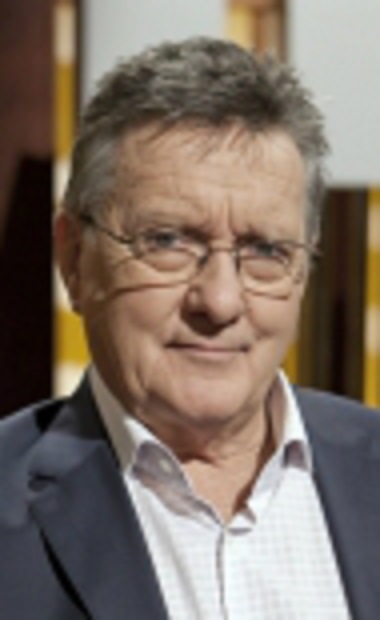
Australian television critic, Graeme Blundell
There is an economic dimension to left cultural dominance. All four academics have made careers writing and teaching multicultural ideology. They have been well-paid activists working for minority interests. They continue their assault unabated as our once thriving nation declines closer to the tipping point – a few decades away from permanent division and absorption into the populations of Asia, the Middle East and Africa. Already whole suburbs have been ethnically and religiously transformed. Despite the extremity of the situation there are no institutions or academic centres dedicated to the welfare of Anglo or white Australians. Indeed, any hint of countering the minority-left alliance with a majority-right movement is condemned and attacked by a hostile establishment.
None of the four academics has suffered consequences for their poor scholarship. None has been denied employment or defunded or shunned, treatment meted out to conservative and patriotic academics here and in the U.S.23 The universities have failed to protect academic standards in relation to research and teaching about ethnic and religious diversity. Looking back, multiculturalism could not have been imposed without our universities first being politicised. Multiculturalism and the indiscriminate immigration that feeds it were, from the beginning, based on ideology, not scholarship, augmented by bullying of those brave souls who sought to preserve the academic values.
Our tax-payer funded universities have since the 1960s been fashioned into a giant indoctrination factory to turn young Australians against their own people.

Canadian-Australian social commentator, Andrew Fraser
This is an appropriate place to assess Ray Martin. Television critic Graeme Blundell notes that Ray Martin has started a new career in public broadcasting hosting programs that stage reality shows in the style of social experiments.24 This tops a long and successful career that won Martin five Golden Logies for most popular personality on Australian television. In 1965 he began as a cadet reporter for the ABC, the public broadcaster whose news and current affairs department was already coming under radical control. His reports were shown on leftist ideological vehicles such as Four Corners and This Day Tonight. He adopted the didactic manner common in ABC current affairs. After moving to commercial television where he appeared on the tabloid A Current Affair and 60 Minutes he added the demagogic and sometimes harassing style common to those programs.
There is no doubting Martin’s oratorical talent. His popularity peaked on commercial television. His articulate and personable manner was attractive and fitted these programs’ entertainment function, more important than providing news or analysis. Viewers had few conservative or nationalist alternatives, though the remarkable success of conservative talk-back radio personalities such as Allan Jones indicates there was latent demand. Another likely cause of Martin’s success was that his pro-immigration, pro-minority bias passed muster with cultural elites, gatekeepers to the media appointments. Martin repeatedly attacked Anglo loyalists, such as Prof. Andrew Fraser in 2005, discussed in the first part of this article. He emerged from selection and training as an ABC journalists, a process that has produced a number of anti-Anglo tabloid performers such as Michael Willesee.
Through this succession of platforms Martin’s minority ethnocentrism remained unchallenged, as did his hostility to Anglo Australia. Instead, doors opened. He reaped the wages of anti-whiteness.
IV
Conclusion and Policy Implications
One lesson of this review is that Australians should not be intimidated by academic titles and media fame. Individuals with high positions and the title of “professor” can peddle transparent falsehoods, as can the university courses they teach. Policy makers should be looking for ways to circumvent the leftist censorship in the social sciences and public broadcasting and re-establish a robust market of ideas.
The deep state has been dragging Australia down with suicidal ethnic policies for half a century. It tamed John Howard’s common-sense patriotism and with it Tony Abbott’s. Both presided over damaging levels of indiscriminate immigration, what John Stone has perceptively called “our self-inflicted wounds”.25 Belatedly, Howard acknowledged that multiculturalism has imposed a pernicious climate of political correctness based on “minority fundamentalism” that has cowed and repressed majority opinion.26 Had he discussed his own repression and surrender he might have explained how political leaders, isolated from academic and bureaucratic support, have yielded on immigration and minority privilege against their better instincts. That seems to have been the case with Howard, a moderate conservative trusted by middle Australia who oversaw the sleight of hand, the bait and switch, that ratcheted-up mass diverse immigration to tsunami level while reassuring the electorate that all was well by shutting out a few thousand boat people. As the SBS program under review shows, the same media and academic elites are still at work, though slightly weakened by competition from the internet and, more promisingly, by the defection of a large minority of the electorate frustrated with political correctness.
We should not dare to hope that self-reflection and remorse will soften the left-minority alliance that empowers multiculturalism. The failure of Martin’s experts to detect or care about their own double standard –ethnic loyalty towards minorities but aggressive cosmopolitanism towards the majority – should dispel any such hope.
Like so much multicultural ideology, the SBS program reviewed in this article is animated by fear of an awakening Anglo-core nation. Hence the attack on nationalist and Christian minor parties. The fear is rational, because it is felt by ideologues whose resources and channels of influence are provided by government or large corporations dependent on government regulation and therefore vulnerable to political reform. As journalist Paul Kelly has discussed, there is now a large professional class employed to enforce political correctness.
The vanguard of the new morality are the elites. Indeed, capture of the elites has been a triumph for the broad and disparate progressive tide. In Australia, like the US, elites in government, business, the public service, and civic organisations are embracing progressive ideas […] The sheer size of the professional class now dealing with the new morality is immense.27
The leftist professional class described by Kelly consists of several mutually-supporting components. The main sources of personnel are university departments of humanities and social science. Left-dominated universities develop doctrine and train professionals to man the many positions in the media, bureaucracies, unions, political parties, and schools used to suppress Anglo resistance under the cover of human rights. The mainstream media play a vital role in instructing the public and intimidating majority activists. An important arm of the infrastructure is equal opportunity and affirmative action offices employed by universities, corporations and unions, who develop and manage multicultural programs at state and federal levels.
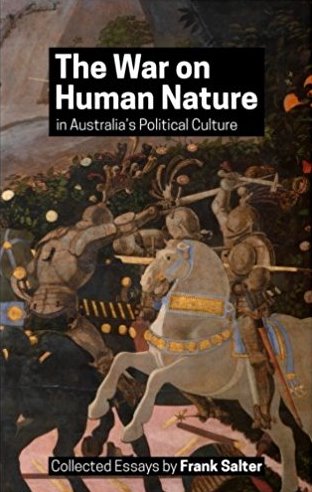
Frank Salter, “The War on Human Nature in Australia’s Political Culture: Collected Essays” (Social Technologies, 2017) [click image to purchase]
Kelly was discussing the contest between secular and Christian values, but there is also a one-sided contest between minorities, or elites claiming to represent them, and the majority. The most visible aspects of this fight consists of the radicalisation of school curricula, the promotion of grievance causes, and the formal and informal suppression of free speech.
Again, it is not surprising that multicultural ideologues fear the rise of parties that could begin to build an ethnic infrastructure for the majority. The greatest danger to them is not temporary defunding of particular projects, but the creation of a professional class of national activists able to work in and with government agencies to neutralise and then replace the system of minority-left supremacy. Australian governments should return to pre-1970s practice by prioritising the group interests of the nation instead of minorities, while guaranteeing individual rights. If Australia is to remain an open democracy while also benefiting from cohesive nationhood, the majority must regain control of policies bearing on the national question.
What are the implications of the SBS program for government policy towards universities? This is not the place for a detailed discussion, but tough measures are overdue. The inaccurate and biased content of the program might not have passed muster if any of the four academics had protested. Instead, they became part of the problem.
There have been many attempts to explain the nature and cause of the intolerant Left’s dominance of the universities. Legal scholar Michael Sexton recently attempted to explain the “regime of political correctness” at universities and other institutions. He supposed they had been captured by the left around 1990.28 Other analysts have identified philosophical causes, beginning a littler earlier. U.S. philosopher Crispin Sartwell thinks much of the bias is caused by postmodernism, a literary theory that incorporates radical critiques of Western society, and really of any civilisation.29 These accounts may be too narrow and too recent.
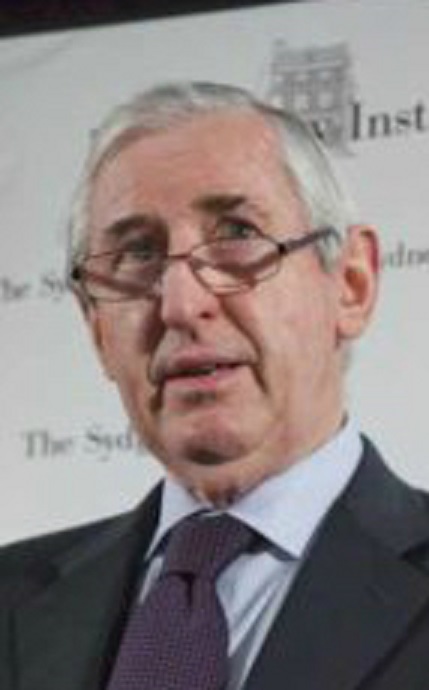
Legal scholar, Michael Sexton
In a 2015 debate at the Oxford Union Society, Dennis Prager, the founder of Prager online university, sought to explain the anti-Western bias of the humanities and social sciences. He suggested that one factor was the “broken moral compass” of Western academia going back 80 or 100 years. As an example he described the castigation meted out by academics to President Ronald Reagan when he called the Soviet Union the “evil empire”. They refused to countenance a moral difference between the U.S.S.R. and the United States, though the former had murdered tens of millions of its own citizens and millions of Ukrainians in the 1930s.30 They accused Reagan of being a fool. Prager also blamed the mainstream media, for presenting a “jaundiced view of the world”.
These accounts fail to explain why cosmopolitan, anti-Western ideology has prospered. A satisfactory explanation remains elusive. The academic literature on the subject agrees that the left’s takeover of elite culture began early in the twentieth century. Sociologist Eric Kaufmann has traced the starting point back that far in the United States. The process lasted for two or three generations, ending in the 1950s to 1960s when the takeover of elite universities was completed.31
As already noted, there is some doubt that multiculturalism is unambiguously leftist. The SBS program’s attack on Anglo-Australians reveals that, despite its rhetoric, it can be seen as coming not only from the Left but also from individuals well to the right of One Nation. Multiculturalists mobilise ethnic constituents, their tribes, by warning them of threats from another tribe, Anglo Australia, which they vilify with accusations of racism.
It will be difficult to correct the social sciences and humanities while respecting the autonomy of scholars and the universities that employ them. Another hurdle is the fact that Australian academe is connected to international disciplines that are themselves politicised. If a way could be found, governments would be justified to defund intellectually corrupt courses and academics. The funding instrument might also be used to establish centres of excellence that champion science and disinterested scholarship over ideology. These centres would offer students real alternatives, and society real experts. Such reform will not be possible while governments of both sides of politics remain under the thumb of the powerful multicultural lobby. A parallel approach might work to reform public broadcasting.
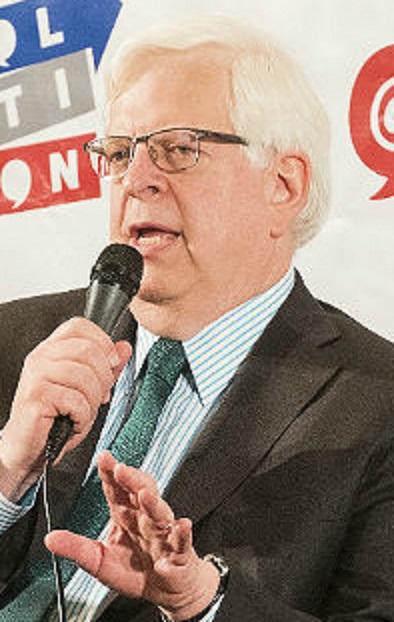
Founder of Prager University, Dennis Prager
Sadly, the SBS program was financed with the assistance of the Australian Government and an agency it funds, Screen Australia. The latter is responsible for promoting Australian screen productions. The agency took over the functions of the Australian Film Commission, the Film Finance Corporation and Film Australia Limited. It is a large body. The Screen Australia Act 2008 (Cth) was passed by the Rudd Labor Government, but never repealed or amended by the Coalition. That implicates the Coalition governments headed by Tony Abbott and Malcolm Turnbull. The latter was Communications Minister under Abbott, whose portfolio included oversight of SBS and Screen Australia. It is extraordinary that any responsible government would fund the mendacious anti-Australian program Is Australia Racist? or fail to indict it once broadcast. There is no excuse for not maintaining high standards of accuracy and balance whatever government is in office.
The Chairman of SBS, Bulent Hass Dellal, argues that the network is fulfilling its mission by providing the needs of non-Anglo minority ethnicities as well as reflecting Australia’s diversity of culture. “Migration continues to soar at a rapid pace, increasing the rich cultural diversity of faces that we see on Australian streets every day. This diversity remains core to SBS […] the role of a broadcaster dedicated to exploring and reflecting the diversity of contemporary society has never been more important.” At the same time NITV, the taxpayer-funded indigenous channel, is representing indigenous audiences. Whether or not it is acceptable to have media dedicated to different identities, there should be universal agreement that misleading, hateful and biased content is unacceptable on any public broadcasting platform.
This program represents a betrayal of public broadcasting standards and of those who elected the Coalition government. As I argued in Quadrant, it is acceptable for a program to take the perspective of an ethnic or religious group, so long as this does not degenerate into vilification of others as this program did. Balance could in principle be achieved at a more general level across programs or channels, something missing from public broadcasting for decades. But it is unacceptable to break with basic standards of scholarship at any point in any program.
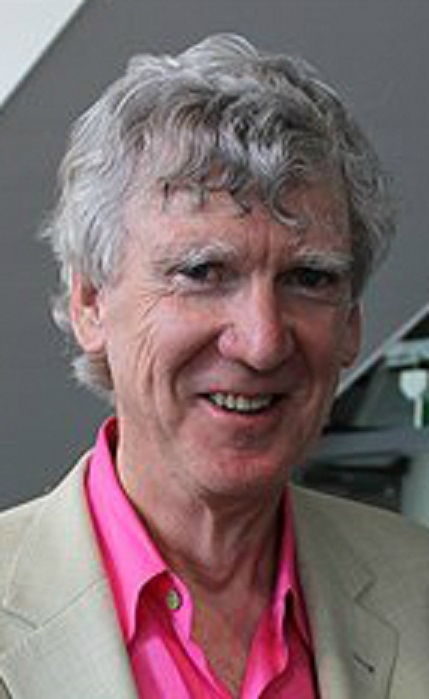
Australian playwright, David Williamson
Like the universities and the ABC, the arts scene in Australia was largely captured by the left from the 1960s, though stubborn dissent exists. Cultural critic Michael Connor has described the arts establishment as “a one-party state, a dictatorship of mediocrity”. “Those in Australia who share the conservative views of the majority of the community are excluded from the nation’s artistic life where the Left are the censors and cultural gatekeepers.” Australia’s most prolific playwright, David Williamson, himself on the centre left, has complained about the power of cultural thuggery in Australia.32
Screen Australia and its parallel funding body Screen NSW impose gender quotas on film productions, aiming to enforce “at least” 50 percent female participation by 2018-19. The senior agency has warned would-be applicants that they are unlikely to fund all-male creative teams. The Australian Directors Guild, which represents film and television directors, supports the draconian policy. Dissent has come from individuals and from Screen Victoria. Lecturer and film journalist Lynden Barber correctly accuses Screen Australia of being an “authoritarian ministry of gender balance” engaged in “cultural Stalinism”. Likewise, producer Sue Milliken criticised the agency for unfairness.33
Screen Australia should be abolished or, preferably, reformed to defend traditional values. It should be feasible to reduce the high level of inaccuracy evident on ethnic and cultural themes in public broadcasting. Programs such as Ray Martin’s should not progress beyond the proposal stage. Their poor scholarship and ethnic bigotry should have ruled them out. The media and academic elites examined in this review give first loyalty to political values ahead of curiosity and intellectual openness. They and their enablers need to be exposed before Australia can begin to rebuild its national identity and social cohesion.
However, as philosopher Michael Walzer has noted, it is not feasible or desirable to abolish ethnocentrism in an open society. Instead, the multiple ethnic loyalties found in Australian society must be balanced. Decades of impotent criticism of the ABC show that balance can only be achieved among channels, not within individual channels. And that can only be achieved by establishing a counterweight, a network that take the side of Anglo Australia.
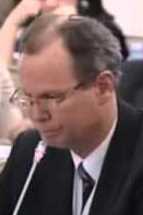
Dr Frank Salter
— Dr. Salter received his PhD in Australia (Griffith University) but spent most of his career at the Max Planck Institute for Behavioural Physiology in Germany. Frank has taught in Britain, the US, Central and Eastern Europe. He has authored and co-authored various peer reviewed articles and essays. His most recent book is The War on Human Nature in Australia’s Political Culture: Collected Essays (Social Technologies, 2017). Now returned to his native Australia, he consults on policy and management issues.
Endnotes:
- Eric Kaufmann, The Rise and Fall of Anglo America (Harvard University Press, 2004).
- Andrew Markus and Moshe Semkyonov, Introduction to Andrew Markus and Moshe Semkyonov (eds.) Immigration and Nation Building: Australia and Israel Compared (Edward Elgar Publishing, 2010) pp. 1-14.
- Timna Jacks, “Action Needed to Combat Poverty” The Australian Jewish News (online) (5 December 2012) <jewishnews.net.au> (accessed, 5 April 2017); Gareth Narunsky, “Conference Explores Language and Culture” The Australian Jewish News (online) (30 January 2013) <jewishnews.net.au> (accessed, 5 April 2017); Peter Kohn, “Jewish Carers $180 Million Strategy” The Australian Jewish News (online) (9 December 2014) <jewishnews.net.au> (accessed, 5 April 2017).
- Markus and Semkyonov, op. cit., p. 2.
- Gareth Nurunsky, “Fighting Discrimination for Four Decades” The Australian Jewish News (online) (27 January 2015) <jewishnews.net.au> (accessed, 5 April 2017).
- Andrew Jakubowicz, “A Bigots’ Frenzy: how race, class and gender still matter in the Australian politics of Section 18C” Pearls and Irritations (blog) (11 November 2016) <johnmenadue.com> (accessed, 5 April 2017).
- Andrew Jakubowicz interviewed by Tracy Holmes, “When it comes to Whiteness in Australian media, we are still telling the same story” ABC News Radio (19 December 2016 at 14:14:52) <abc.net.au/newsradio> (accessed, 5 April 2017).
- Andrew Jakubowicz, “Free Speech, Democracy and New Media: Cyber racism” in Helen Sykes (ed) More or Less: Democracy & New Media (Future Leaders, 2012).
- Michael Walzer, “Notes on the New Tribalism” in Chris Brown (ed.) Political Restructuring in Europe (Routledge, 1994) pp. 187-200.
- David Goodhart, The British Dream (Atlantic Books, 2013) pp. 108-109.
- Keith Windschuttle, The Breakup of Australia: The Real Agenda Behind Aboriginal Recognition (MacLeay Press, 2016).
- Department of Social Services (Commonwealth), “A New Agenda for Multicultural Australia” (7 November 2014) <dss.gov.au> (accessed, 28 March 2017).
- Leading for Change – A Blueprint for Cultural Diversity and Inclusive Leadership (Australian Human Rights Commission, July 2016).
- Stephen Chavura, “Cultural Values Worth Testing” The Australian (24 April 2017) p. 12.
- David Wroe, “Australian Defence Force to Get its First Muslim Imam” Sydney Morning Herald (online) (2 March 2015 @ 5:58pm; updated, 3 March 2015 @ 12:03am) <smh.com.au> (accessed, 2 June 2016).
- Allan Ashbolt, “Nationalist Contradictions” in John Romeril (ed.) The Floating World (Currency Press, 1975) pp. vii-xi.
- Ibid. pp. viii-ix.
- Ean Higgins, “Ideology Ousts News at ANU Paper” The Weekend Australian (1-2 April 2017) pp. 1, 4.
- See generally: Kaufmann, op cit.
- John Masanauskas, “Peter Scanlon Backs Population Growth” The Herald-Sun (4 December 2009) p. 74.
- Michael Bodey, “Facebook Faces Growing Criticism of Bias and Censoring Posts” The Australian (19 May 2016) p. 11.
- Declan Gooch, “Flashpoint Penrith: Challenge for Leaders ad Tension Bubbles Under the Surface” Sydney Morning Herald (online) (4 February 2015 @ 11:47am; updated, 10 February 2015 @ 9:07am) <smh.com.au> (accessed, 17 March 2017).
- Jonathan Haidt, “The bright future of post-partisan social psychology” Presentation at the Annual Conference of the Society for Personality and Social Psychology, San Antonio, Texas (27 January 2011); Frank K. Salter, The War on Human Nature in Australia’s Political Culture (Social Technologies, 2017).
- Graeme Blundell, “Daring to Stare” Weekend Australian Review (2-3 September 2017) p. 23.
- John Stone, “Immigration policy: Our self-inflicted wounds” Quadrant Vol 54 Issue 9 (2010).
- Paul Kelly and Dennis Shanahan, “People too Scared to Speak: ex-PM” The Weekend Australian (27-28 February 2016) pp. 1, 8.
- Paul Kelly, “A new secularism trashes tradition” The Australian (online) (15 April 2017) <theaustralian.com.au> (accessed 26 April 2017).
- Sexton, Michael, “Sanctimonious thought police taking charge of national debates” The Australian (online) (4 April 2017) <theaustralian.com.au> (accessed 26 April 2017).
- Crispin Sartwell, “How today’s political correctness grew from uni postmodernism” The Australian (28 March 2017) p. 10.
- Dennis Prager, Arguing to the Affirmative, “Hamas is a Greater Obstacle to Peace Than Israel”, Debate at the Oxford Union Society (29 April 2015).
- See generally: Kaufmann, op. cit.
- Michael Connor, “On David Williamson” Quadrant Online (September 2008) <quadrant.org.au> (accessed 6 May 2017).
- Rosemary Neill, “‘Cultural Stalinism’ in Screen Gender Stand” The Weekend Australian (6-7 May 2017) p. 3.

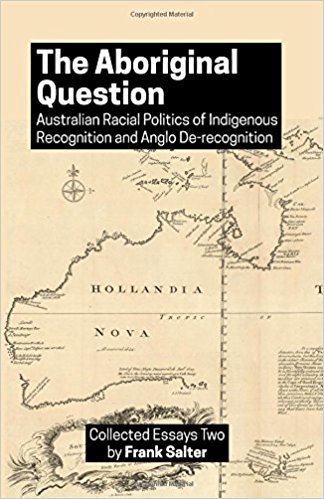
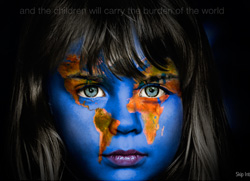


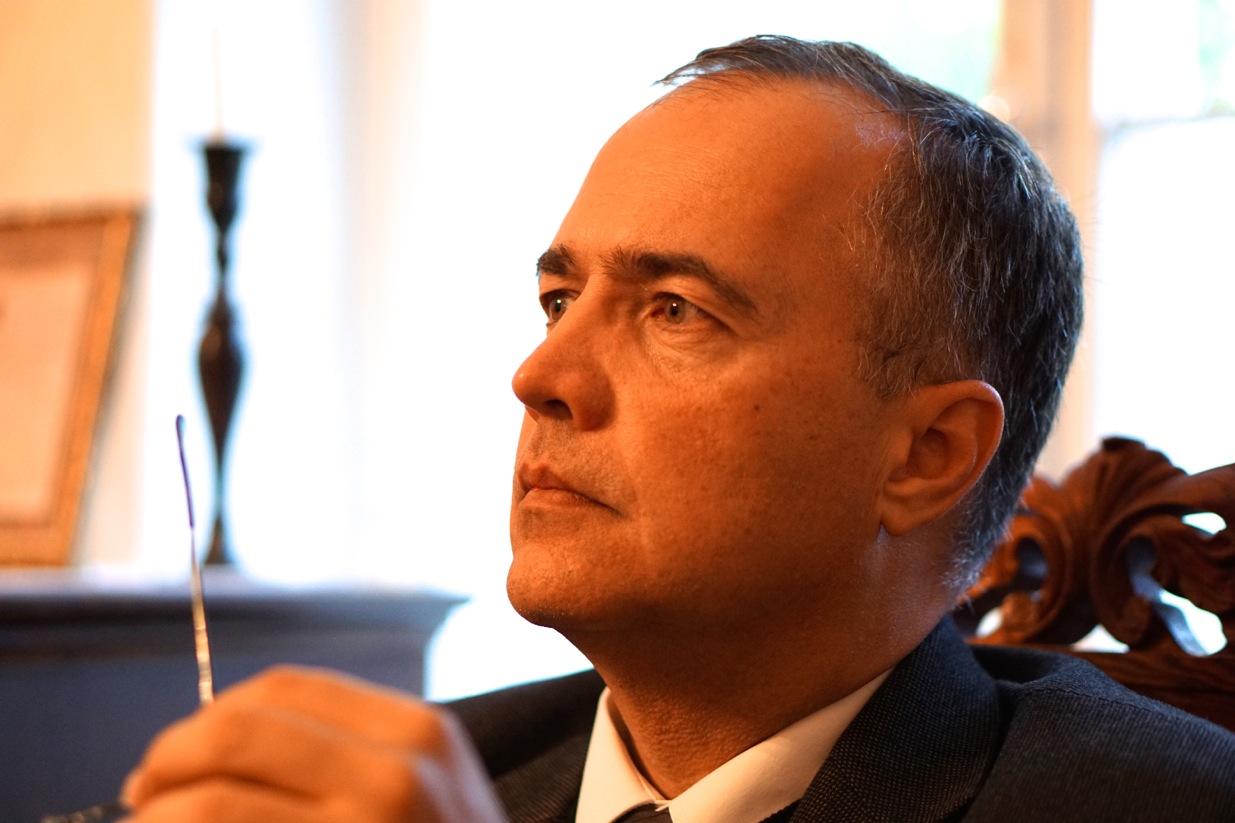
Leave a comment